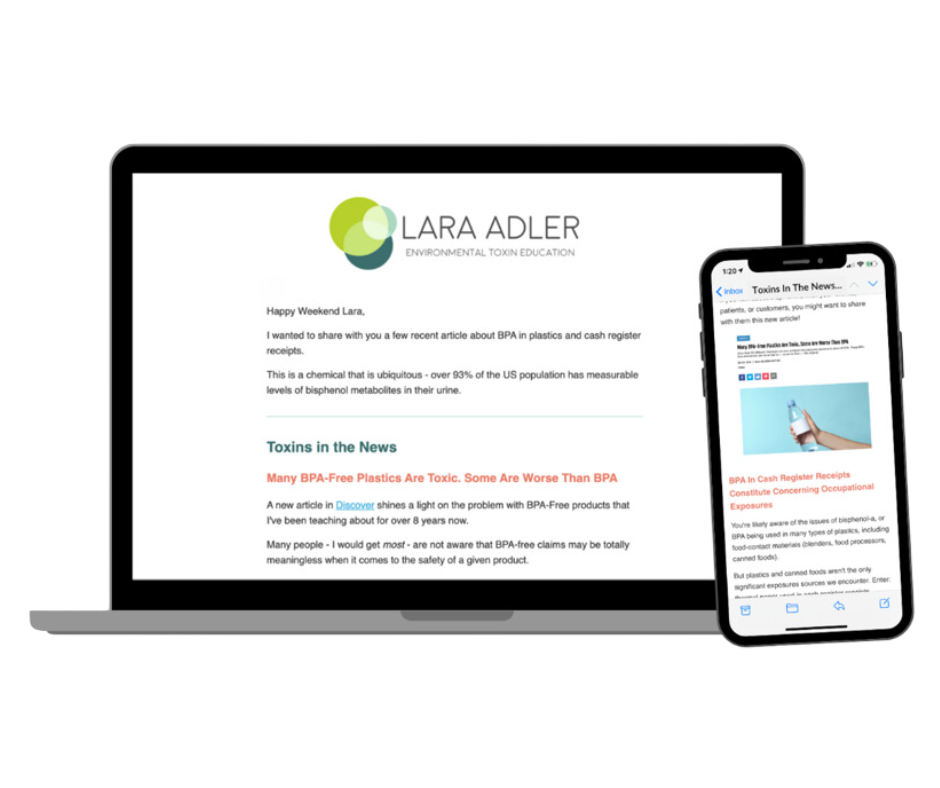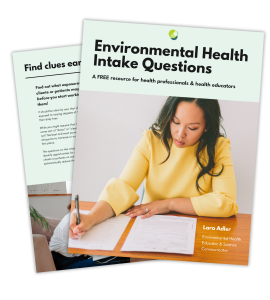Ever heard that line before? The dismissive “I’m not dead yet” remark in response to some news about some unhealthy/dangerous/or downright toxic thing they’re eating/doing/using.
Here are some situational examples of the use of this phrase:
You: “Those french fries are soooo bad for you!”
Them: “Whatever. They’re yummy, and hey, I’m not dead yet!”
or
You: “I’ve been switching out all my shampoos because I just learned that some of the chemicals in there are linked to cancers”
Them: “Why bother? I’ve been using shampoo since I was a baby, and look, I’m not dead yet!”
or
Them: “Look, I grew up using plastics and Tide laundry detergent… if they’re so bad, wouldn’t I be sick by now?”
Here’s a perfect example… this guy made this comment in response to an article about brominated chemicals in sodas like Mountain Dew:

These people may, as individuals be “okay”, but collectively, as a population – really, as a species – we are not “okay”. In fact, we are far from it. Disease rates, of nearly every type are on the rise. Cancers. Leukemia. Diabetes. Obesity (American Medical Association just declared obesity an official disease earlier this week). Asthma. Allergies. Autism. Learning Disabilities. Infertility. All on the rise.
So can we really say we’re “okay”? I certainly don’t think so!
But people sometimes mistakenly assume that if something is “bad for you” it’s going to cause your hair to fall out, your stomach to cramp up, your heart to race, or worse, suddenly stop pumping. People mistakenly assume that exposure to something bad means they’re going to have an immediate and acute response.
I may get some flak for saying this, but I actually wish that was the case! If it was, it would be much easier to pinpoint which chemicals are causing what problems, and would lead to swifter chemical policy reform. Alas, that’s not the way it works though, so what we’re left with is the task of teasing out what “bad things” are contributing to chronic health conditions.
If you’re in the health & wellness field, you’re likely familiar with parallels to this way of thinking… You know that it’s not one pack of french fries that’s bad for you, it’s a lifetime of french fries. It’s not one cigarette that’s going to give you lung cancer, it’s years of smoking. It’s not one soda that can trigger diabetes, but gallons and gallons of it.
The same is the case with many of the chemicals we encounter on a daily basis – that single use of shampoo, laundry detergent, or plastic water bottle isn’t going to give you cancer, or cause your body to become resistant to insulin, but it will most certainly contribute to your overall RISK of these things. (Unless you suffer from MSC – Multiple Chemical Sensitivity, you’re likely not going to experience acute reactions to small exposures like these. Many people with MCS can’t walk down the cleaning isle, or plastic storage isle of a store without getting headaches, asthma attacks, or worse)
I recently had a conversation with my good friend, and colleague Andrea Nakayama of ReplenishPDX, a functional nutritionist and Certified Health Educator about what factors constitute “risk” and she put it like this:
disease risk = susceptibility X lifetime exposure X toxic potency
Your risk for disease or illness really depends on those three things: susceptibility, lifetime exposure, and toxic potency. She went on to say that our susceptibility can be determined both by our genetic predispositions as well as how effective our bodies natural detox organs & barriers are functioning. If any of those systems are compromised, our susceptibility increases.
So, are you okay?
That depends on a few things. Rather than let people unknowingly ride the razors edge of disease risk, your job is to help people slowly modify their behaviors and habits so that their disease risk is reduced. Let people know that they might be “okay” right now… but if they’re too close to that edge, things could change quickly.
Reminding people that in the same way one cigarette won’t give them cancer, but regular smoking very well might, exposure to environmental chemicals once or twice likely won’t give them cancer (or heart disease, cause infertility, diabetes, etc), but that regular exposure very well may, is a good way to counter the “I’m not dead yet” remarks!
And reminding people that they have the ability to control their “disease risk”, regardless of genetic predisposition, by altering the other variables in that equation: reducing exposures, reducing potency (meaning don’t mess around with high potency chemicals) and help reducing their susceptibility by improving organ function (ie, eating whole, healthy foods, that primarily support the liver, kidney, colon).



